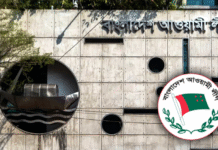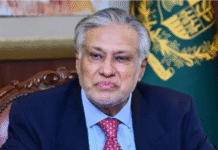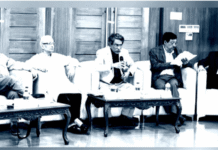
For years, India has been promising to bring the killing of Bangladeshis along the Indo-Bangla border down to zero.
But the reality is, border killings by Indian Border Security Force (BSF) personnel have been on the rise in recent years.
Border Guard Bangladesh (BGB) will again ask its Indian counterpart to stay true to its words during the annual border guards director general-level talks at the BGB Pilkhana headquarters from September 13-18.
BGB DG Maj Gen Md Shafeenul Islam would lead the Bangladesh side while newly-appointed DG of BSF Rakesh Asthana would lead his country at the meeting, the first of which was held in 1975.
BGB officials said border killings would be the primary topic of discussion as Bangladesh and Indian foreign secretaries discussed it during the latter’s recent visit to Dhaka.
Data from rights body Ain o Salish Kendra (ASK) shows that 15 people had been killed along the Indo-Bangla border in 2018. The number rose to 43 last year. In the first seven months of this year, 29 people were killed.
Most of the victims were unarmed and shot dead.
Even yesterday, a 30-year-old man was shot dead allegedly by BSF men when he was fishing in Baliadangi upazila of Thakurgaon.
Some were tortured to death.
One of the victims died after BSF men allegedly forced petrol into his mouth and rectum.
All fingernails of another victim were pulled out with pliers after he was detained for illegal entry into Indian territories.
Since 2000, more than 1,000 Bangladeshis have been killed in border areas, according to rights defenders who described the Indo-Bangla border as “killing fields”.
The border-killing issue also came up at a meeting of the Jatiya Sangsad committee on foreign affairs. Foreign Secretary Masud Bin Momen had said that India assured Bangladesh that it would probe as to why people were still getting killed at the borders.
Momen told the committee that Indian Foreign Secretary Harsh Vardhan Shringla had assured him that he would discuss the border-killing issue with the high-ups of the Indian government.
BGB’s Director (operations) Lt Col Fayzur Rahman told The Daily Star that all important border related issues would be discussed and border killing was one of them.
He mentioned border violations, construction of different establishments on the border, and raising barbed wire fences within 150 yards of zero line as some of the other key issues that would be discussed.
Lt Col Fayzur told the Daily Star, “The entry of waste from India through Akhaura-Agartala ICP [check post] will also get priority in the talks as we have been trying hard to stop the inflow of such waste.”
The BGB official said chemical waste was flowing in via a canal even though India had been claiming that it was only human waste.
Mosabber Hossain Mohammad Rajib, assistant director at the Department of Environment (DoE) in Dhaka, on Monday said they tested the canal water in 2017.
“The presence of dissolved oxygen [DO] was found to be very low. The DO level was only 0.24-0.36 mg/L, against the standard 5mg/L in the canal water. No fish or other aquatic lives can survive in such low DO level,” said Rajib, who was at the Brahmanbaria DOE office.
There were heavy metals, like lead, chromium, and iron, in the water, he added.
Meanwhile, officials in India said issues like better mechanisms to stop attacks and assault on BSF personnel and Indian civilians by criminals of both the countries were expected to be discussed, reports our New Delhi correspondent Pallab Bhattacharya.
The Indian side is expected to take up the issue of joint border security management, fencing of unfenced areas, and effective steps to curb cross-border crimes.
Cattle smuggling, smuggling of fake Indian currency notes, illegal migration, human trafficking, breaching or damaging border fence, and illegal crossing by Rohingyas would also be taken up, Indian officials said.









